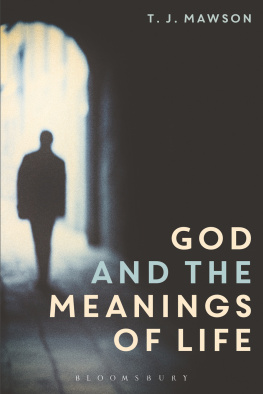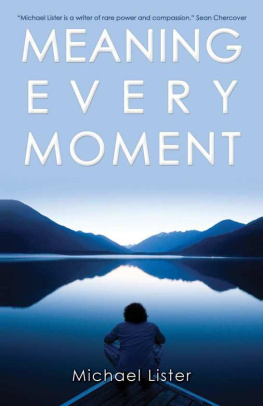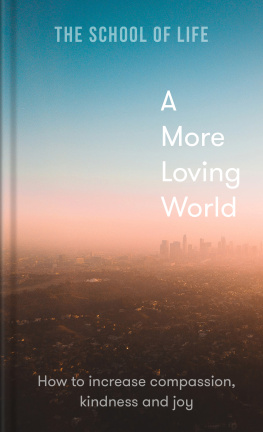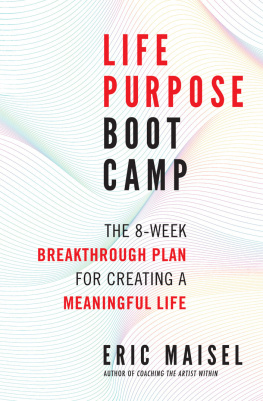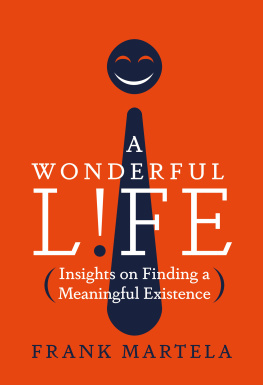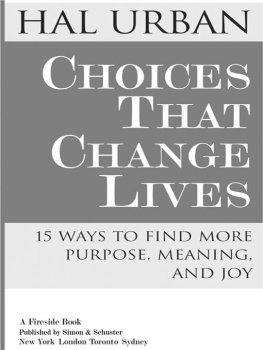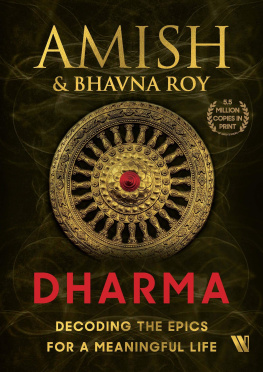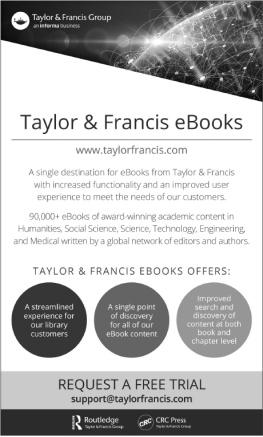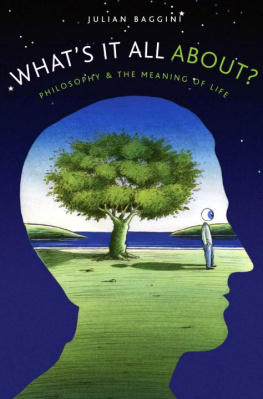GOD AND THE MEANINGS OF LIFE
Also available from Bloomsbury
FREE WILL: A GUIDE FOR THE PERPLEXED
by T. J. Mawson
NOTHINGNESS AND THE MEANING OF LIFE
by Nicholas Waghorn
DELEUZE AND THE MEANING OF LIFE
by Claire Colebrook
THE GOD CONFUSION
by Gary Cox
To Joanna and all that her life will mean
GOD AND THE MEANINGS OF LIFE
WHAT GOD COULD AND COULDNT DO TO
MAKE OUR LIVES MORE MEANINGFUL
T. J. Mawson
Bloomsbury Academic
An imprint of Bloomsbury Publishing Plc
CONTENTS

(The Lord giveth and the Lord taketh away)
Note
The Book of Job , extract from Chapter 1, verse 21.
The authors of the works listed in the bibliography and in the suggestions for further reading have helped me in thinking more clearly about the topics covered in this book. I would like to record my gratitude to them, even those mention of whose thoughts was in the end squeezed out of my notes owing to considerations of space.
In addition, many people have helped me personally with the writing of the book: those attending Brian Leftows work in progress group, who were kind enough to comment on a draft; those attending the Natural Theology Group that meets at the Athenaeum, who were kind enough to look over some material in even rougher form; and then especially Brian Leftow and Nick Waghorn, who read the penultimate draft.
Some of the ideas in this book appeared first in an article in The European Journal for Philosophy of Religion and I am grateful to the editor, Janusz Salamon, first for publishing it, and, second, for permission to reuse that material. Other ideas appeared first in a review article for Philosophy Compass ; I am similarly grateful to Charles Taliaferro for first publishing that and for allowing me to reuse that material.
Finally, I record my thanks to those at Bloomsbury who have assisted in bringing this work to publication: Liza Thompson and Frankie Mace.
St Peters College,
Oxford
Some philosophers have thought that our individual lives can only be meaningful if there is no God of the traditional classical theistic sort an eternal, omnipotent, omniscient, creator and ruler of the universe. By way of two examples, Jean-Paul Sartre and Thomas Nagel seem to have been of the opinion that if there were a God of this sort, then He would constrain our power of self-creation and autonomy in ways that would at least severely detract from the meaning of our lives, possibly even evacuate our lives of all meaning.
In a rightly famous passage to which we shall return and treat in more detail later, Sartre pictures our situation had there been a God. We would then be comparable with mere artefacts, things that exist solely to perform a function assigned to them by another. Gods creating us would destroy the possibility of our creating ourselves and would thereby render our lives meaningless. Or at least meaningless for us .
I have it in mind here that the most plausible Sartrean view is that if Theism is in fact true, then our lives are still meaningful for God . On such a supposition, they would, after all, still have the meaning-giving purpose(s) that God had assigned them. Sartres point is that they wouldnt then be meaningful for us . That is to say that I am taking it that the most plausible Sartrean view would have it that assigning another persons life a purpose gives that other persons life a meaning. Its not that someone other than oneself just cannot give ones life a meaning by assigning a purpose to it. Rather, Sartres view is that the meaning a life gets by being assigned a purpose by another is valueless (or worse) to the individual to whom the meaning-giving purpose has been assigned. Its not the sort of meaning that he or she should be wanting quite the opposite. As Rescher expresses it: What is central to the issue of the meaning of life is whether what we do can and does really matter not to God or to the universe but to ourselves. It is clearly just this namely, mattering for us that counts for us , since that is who we are. And it is meaningfulness for us that is what we should value.
By contrast with the theistic worldview, according to Sartre, atheistic existentialism puts every man in possession of himself as he is, and places the entire responsibility for his existence squarely upon his own shoulders. and thus meaningfulness.
Thomas Nagel seems to have thought along similar lines. In another oft-quoted passage, Nagel says this: I want atheism to be true and am made uneasy by the fact that some of the most intelligent and well-informed people I know are religious believers. It isnt just that I dont believe in God and, naturally, hope that Im right in my belief. Its that I hope there is no God! I dont want there to be a God; I dont want the universe to be like that. My guess is that this cosmic authority problem is not a rare condition and that it is responsible for much of the scientism and reductionism of our time. Nagels problem with authority seems similar to Sartres. But there are differences.
First, it is worth noting that Nagel is far more aware than Sartre of the irrationality of letting ones aversion to authority drive one to beliefs about what authorities are actually out there. Nagels higher-order attitude towards the issue is clearly that if we are under divine authority, well, then thats that. Well just have to get on with it (and probably Him). But his lower-order attitude is equally clear and, it seems to me, in essence at one with Sartres. He passionately hopes that were not under that sort of authority. We may safely presume then that Nagel doesnt regard his wanting not to be under authority as a perverse response to the true value of being under authority. He thinks that hes right not to want the world to be one where were under the sort of authority that God would have over us. Why, according to Nagel, is that the right attitude? Well, he may have in mind other disvalues that he supposes would come in Gods train, but it seems to me that high up his list would be that in any Godly world (i.e. one in which Theism is true) we are denied the scope for self-creation and autonomy and the resultant meaning-for-us-generating capacity, that he, like Sartre, values.
Another difference between Nagel and Sartre is that it is less clear whether Nagel supposes that we do in fact enjoy this sort of meaningfulness in any case, even given that Atheism is in fact true. This is because Nagels position is complicated by the fact that it is not at all clear that he thinks that this sort of self-creation (even if undertaken in a spirit of ironic awareness of the ultimate absurdity of life) can add to meaningfulness in any case. And it is well summed up by E. D. Klemke, in the following passage:
There are other values that, while initially some distance away from meaningfulness, could be argued to be threatened by the existence of God and that might be tied to meaningfulness so as to generate a resultant worry here. In a recent paper, Guy Kahane, for example, says the following of a Godly world: It is a world where everything about us is known and fully understood by another, a world where even our innermost thoughts and feelings are not entirely private. It is a world in which we are never truly alone, away from the presence and attention of another. And that seems undeniably right God is, by definition, omniscient and thus if there is a God, nothing is ultimately private. If we then suppose, as most do, that privacy is a value, well have to conclude that its one that God, if He exists, cannot but help detracting from. Initially at least this detraction in the amount of privacy we enjoy does not entail a detraction in the amount of meaningfulness we enjoy. Privacy and meaningfulness are two different values, after all. (In order to exemplify their difference, one might consider the case of the British journalist, Martin Bell. He allowed his financial and personal life to be open books for the electorate when he stood successfully, as it turned out against an incumbent MP who had been caught accepting money for asking questions in the House of Commons. Bells life was, intuition suggests, made more meaningful but less private by all of this.) However, while distinct values, privacy and meaningfulness could be linked by a particular person in the manner that Im about to outline (following Kahane), linked so that damage to the first leads inevitably to damage to the second.

